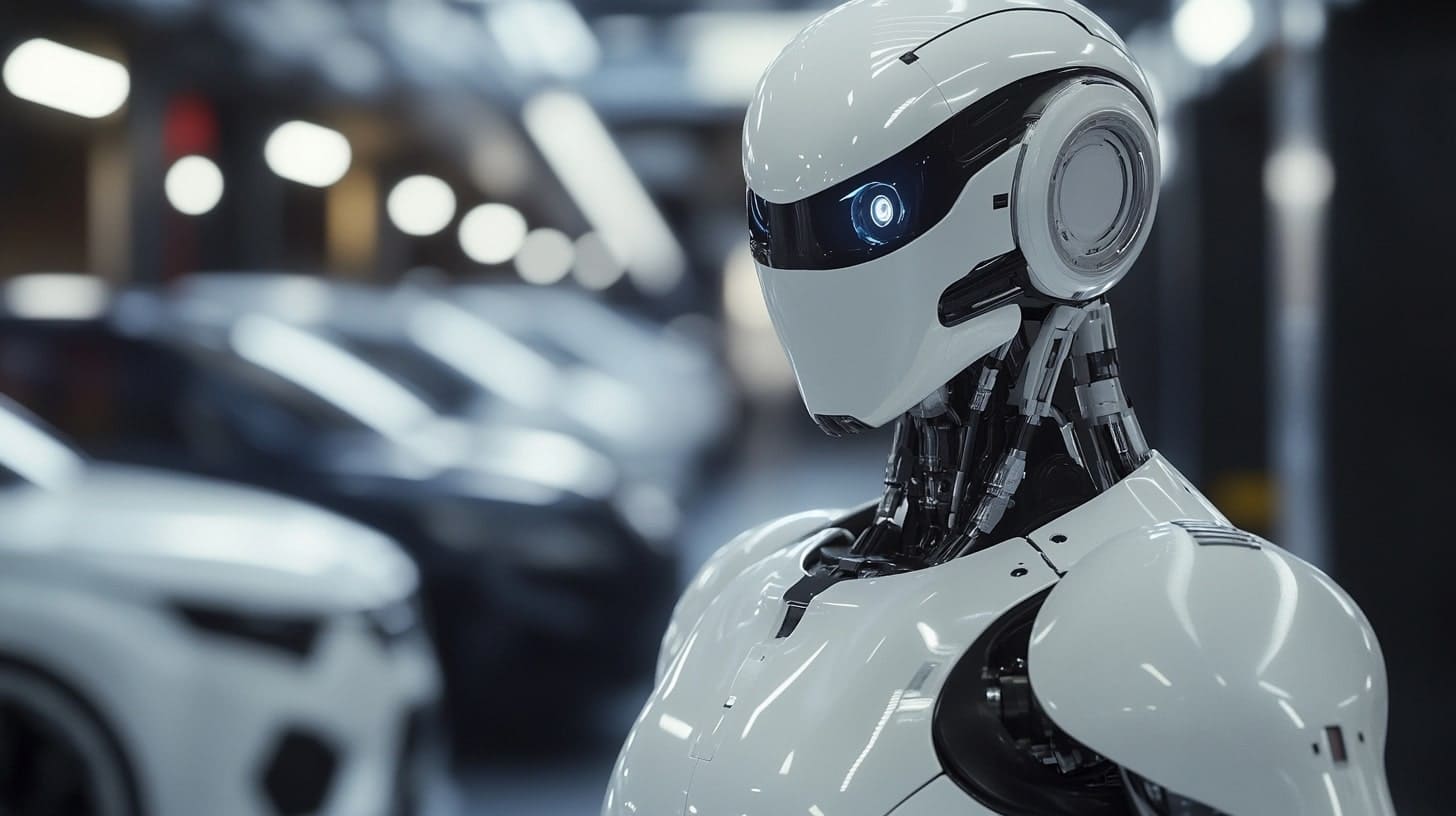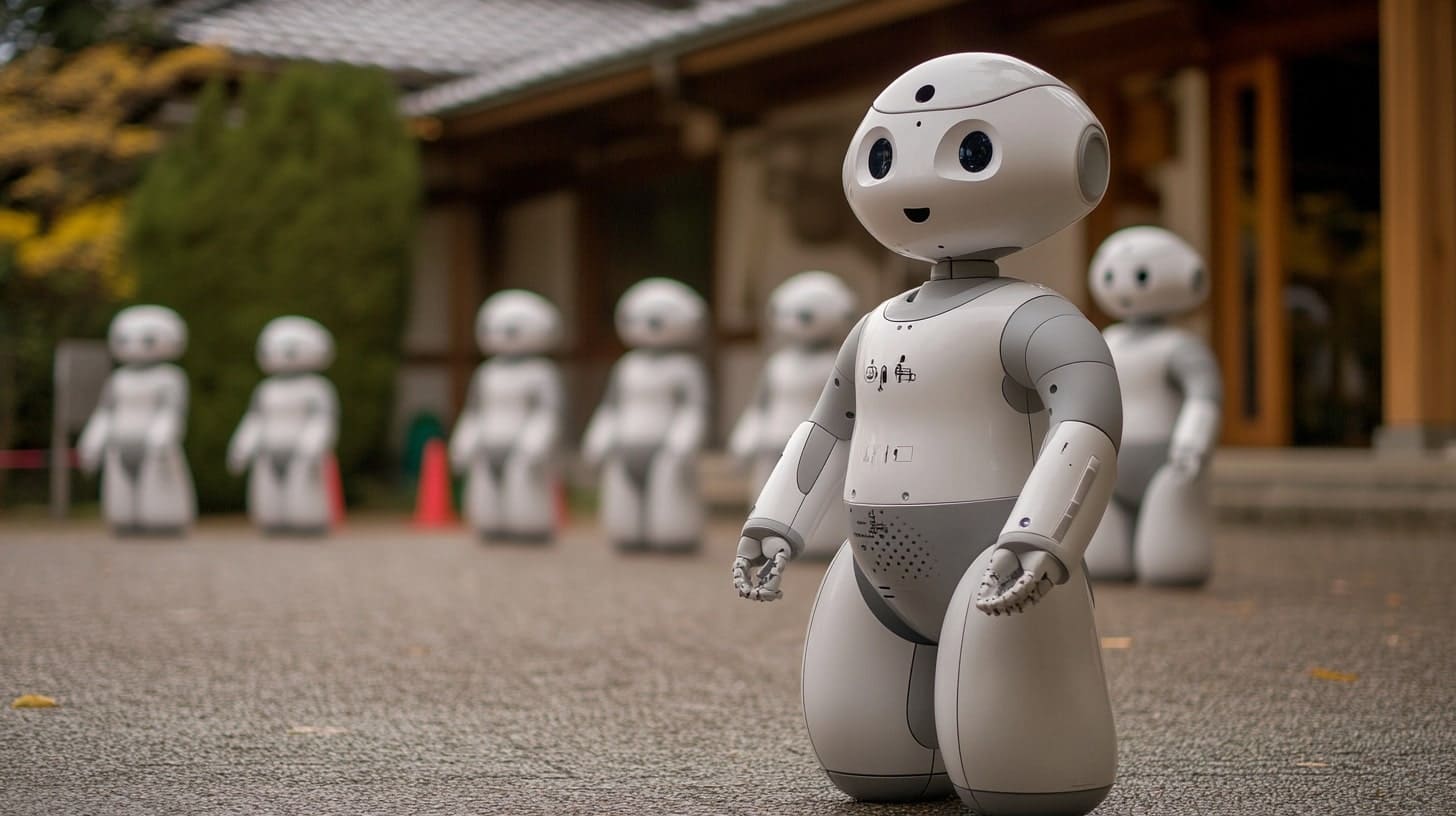AI in Smart Homes: The Evolution of Home Automation
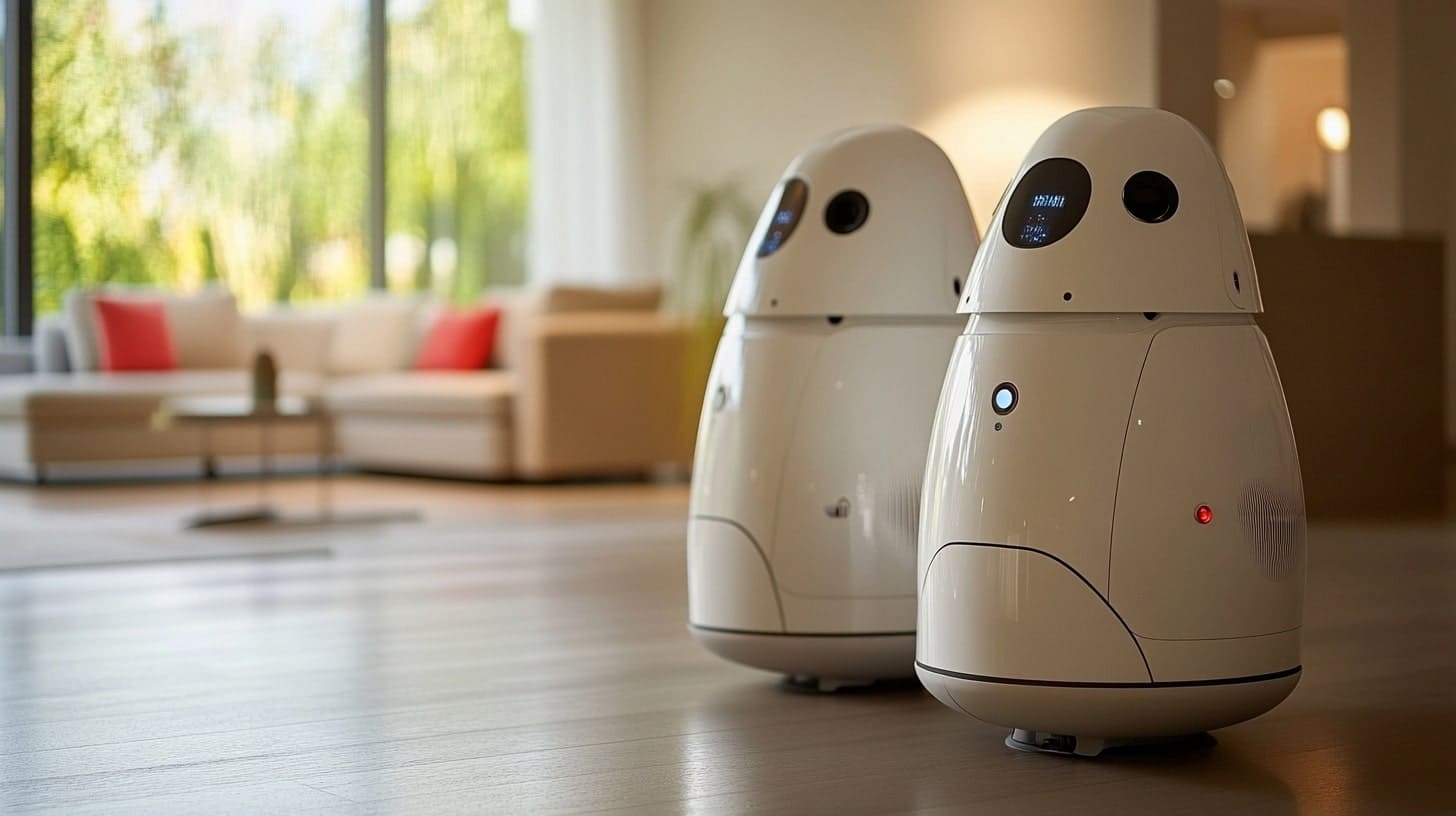
AI has helped accomplish specific goals across various industries by streamlining processes. One of AI's key benefits is reducing human error and preventing system failures. It improves overall productivity and quality of life. Artificial intelligence plays a key role in creating comfortable home environments. AI in smart homes helps to achieve an optimal standard of living. Constant monitoring and security are standard features. People are adopting AI for various purposes. More people now have access to technology that can improve their daily lives.
AI enables precise temperature and climate monitoring throughout the home. Algorithms and machine learning enhance productivity across various household tasks. Artificial intelligence can predict user behavior. This technology allows people to enjoy personalized entertainment experiences based on their preferences. AI helps to control the lighting appropriately depending on the time of day and human preferences. Artificial intelligence is being extended to other devices used by humans. Today, most routine tasks can be performed automatically. AI home systems are a cost-effective solution for general comfort and safety.
Key Features of AI-Powered Home Automation Systems
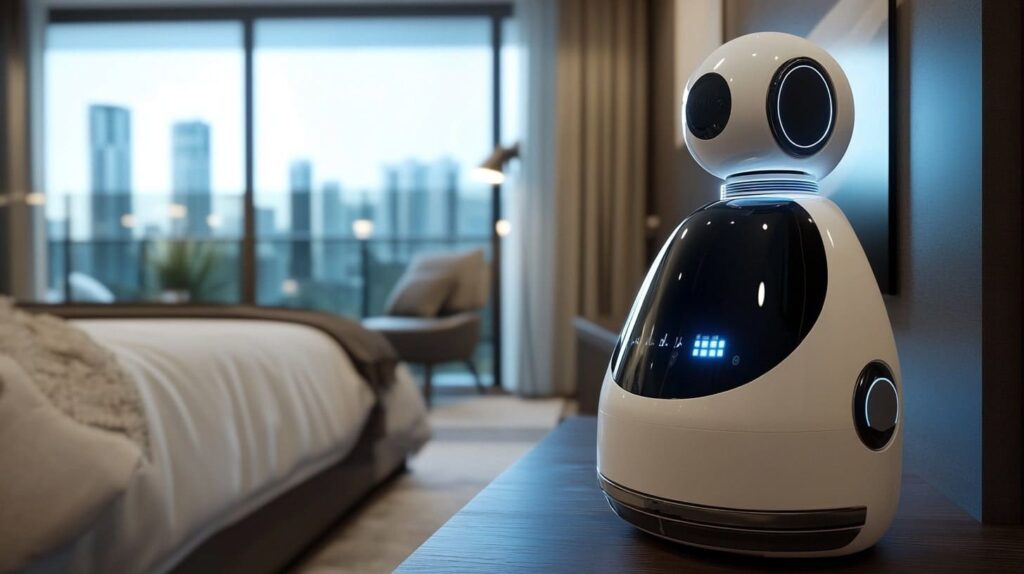
Artificial intelligence is transforming how people interact with their environments. Thanks to it, companies can automate their routine tasks. Companies can tailor automation to meet specific standards and achieve desired outcomes. AI is the best choice not only for various fields but also for humans. Smart homes are gaining popularity and delivering effective results. People experience greater comfort and enjoyment in their homes. Here is an example of the main characteristics of home automation systems:
- Adaptability. Smart AI for home learns from behavior patterns. Artificial intelligence helps people streamline their daily routines. Energy usage adapts to household patterns and needs. A prime example is adjusting the temperature depending on the person's comfort. Artificial intelligence adapts and analyzes a person's daily habits.
- Voice control. An integral part of voice control is providing practical voice control in the home. Users can control music through voice commands, which are processed by AI assistants. A person can control lighting, turn on movies, and use devices by voice.
- Integration of devices. Integrated systems offer significant advantages for homeowners. Artificial intelligence can integrate several devices simultaneously to maximize human comfort. Often, a good example is an enhanced security system for the home. Smart locks, security cameras, and other devices interact.
- Prediction. Thanks to home automation AI, human needs are predicted. Users can customize their daily routines for optimal results. A good example is turning on the coffee machine or other devices at a particular time. AI customizes settings by anticipating people's needs.
- Security. Improving the level of security in the home is equally important. AI can identify suspicious activities and unusual patterns. It recognizes faces and sends data to a person's phone or other devices. Systems include motion alarms or automatic door closing. Homeowners enjoy enhanced security and comfort.
- Resource optimization. AI in smart homes significantly improves energy efficiency and resource management. AI analyzes electricity and other systems that are not subject to constant use. AI can independently control the process of heating, ventilation, and energy consumption.
Voice-controlled assistants and Smart Speakers
Artificial intelligence allows homeowners to fine-tune comfort levels and ambiance throughout their homes. Smart assistive technologies have become integrated into our daily routines. They help people adjust their lifestyle. They provide convenient and intuitive ways to optimize your home. Voice assistants and smart speakers allow you to control appliances and receive certain information. AI smart home devices help you to perform daily tasks hands-free with just a few commands. Here are the main features of voice assistants and smart speakers:
| Voice assistants | Smart speakers |
| Voice assistants are AI-powered software that interprets and responds to spoken commands. They process and understand natural language in a human-friendly way. A prime example is Google Assistant and Apple Siri, which understand voice commands. | Smart speakers are devices with built-in voice assistant capabilities. They allow users to interact using natural spoken language. They support multiple languages, making them accessible to diverse users. |
Voice assistants and smart speakers enhance our ability to control our environments. Their most important use is data privacy. AI in homes sometimes raises privacy issues, so everything should be transparent. Another application is the quality of human speech recognition. Sometimes, mistakes or misunderstandings of the command raise some questions. Addressing these challenges helps ensure complete security while at home. Here is a description of the main features of voice assistants and smart speakers:
- With these tools, a person can turn on and off the lights using their voice. Their commands help to regulate the temperature in a way that is convenient for the person. While at home, it becomes possible to control cameras to monitor household appliances.
- A significant advantage of AI in homes is the search for information. They provide thoughtful answers to questions and search for what a person is interested in.
- Thanks to the command, a person can access any music, comic books, and anything else that interests them.
- Voice assistants and smart speakers can create interactive environments and learning experiences. For families with children, AI helps to distribute responsibilities and make the home more comfortable.
- AI in the home is the best way to accomplish one's tasks. Reminders and organization are another advantage when a person sets alarms or calendar events.
The tools have vast and valuable benefits for humans. The main advantage is convenience, which is characterized by the ability to do everything hands-free. Thanks to artificial intelligence, people save their time at home. Artificial intelligence adapts to user preferences. Smart home AI provides highly personalized experiences. The ability to integrate with multiple devices also plays an important role.
Machine Learning and Personalized Home Automation
Today's lifestyle demands innovative solutions that balance comfort and practicality. Various artificial intelligence systems allow you to optimize your work and improve comfort. Systems are constantly evolving, especially when it comes to smart homes. They can learn based on human behavior and interaction. Machine learning powers these systems' ability to adapt to user habits and preferences. Here is some helpful information about machine learning and personalized home automation:
- Adapting to humans. AI home automation significantly enhances comfort and convenience. Systems are constantly learning through machine learning. They can analyze the operating time of appliances and heaters. This capability allows systems to automatically adapt to changing situations. Thanks to machine learning, systems can turn off electricity at certain times.
- Prediction. A significant advantage of machine learning is the prediction of needs. Constant voice commands help to turn on various appliances and set up work. After a while, the systems learn and are automatically used by humans. For example, lighting systems that automatically turn off when not needed.
- Personalization. A significant advantage is the personalization of voice commands with the help of machine learning. Automation in the home is a reliable way to understand human voices and commands. Continuous training of voice assistants allows them to perceive speech style and accents. This results in fast and accurate interactions with humans.
- Optimization. Optimization often relates to the issue of power consumption and electricity. Machine learning algorithms can track specific patterns. The system adjusts to work schedules to minimize electricity usage. The system can automatically turn off electricity at unnecessary times to save money.
- Security. Security is important to everyone. Machine learning-based systems analyze sensors and surveillance cameras. Machine learning enables cameras to recognize suspicious activity and strange movements. The systems can send alerts to a person's phone if necessary.
AI in smart homes has many benefits for human comfort. Personalized automation through machine learning has advantages in terms of comfort. The systems adapt to your lifestyle and automatically handle routine tasks. Hands-free operation saves time and adds convenience. The systems help to achieve cost-effectiveness in electricity and other systems. Constant updates and improvements provide increased safety for humans. AI for home creates a suitable environment for humans and their safety and life.
Enhancing Home Security with AI
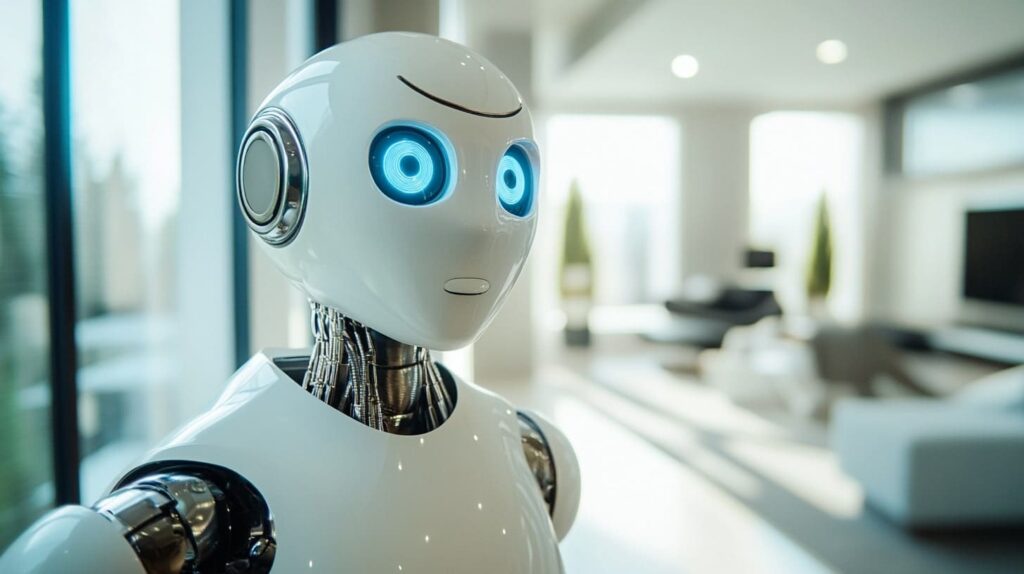
Artificial intelligence helps to achieve not only comfort but also safety for humans. It creates all the necessary capabilities for constant monitoring in real-time. Security is essential for peace of mind and wellbeing. Modern home security systems offer innovative solutions tailored to individual needs. Continuous data analysis and training help to control the process in real-time. Alerts about suspicious actions or movements are sent to a person's device. The development has helped security systems improve their performance and become more adaptive. Here is how AI smart home devices are changing the approach to home security:
- Special cameras have built-in algorithms based on artificial intelligence. They can recognize the right faces and notify the owner. The system distinguishes between household members and unknown visitors.
- Artificial intelligence detects suspicious actions and suspicious movements. The system alerts homeowners when security zones are breached.
- AI-based systems activate the alarm system on their own. If necessary, security systems close the doors and can call the security service. The system focuses on identifying potential threats to home security.
- AI home systems such as cameras analyze events in real-time. Artificial intelligence processes data and separates information from cameras and sensors. The system evaluates potential threats.
- Artificial intelligence integrates with voice assistants to actively manage security systems. Voice commands allow for easy security verification and monitoring. Reports are sent to the owner's device to assess the situation and put them at ease.
There are many advantages to using artificial intelligence for home security. This approach increases accuracy and reduces false alarms. AI in smart homes provides personalized settings for each family member. A person can remotely control and monitor home security. The integration offers constant control and the ability to monitor in real time.
AI in Energy Management and Sustainability
Artificial intelligence has many benefits for the home. The main ones are the ability to manage energy and sustainable development. Artificial intelligence helps to distribute energy consumption properly. The constant integration of technology with devices creates high efficiency. A person uses the right resources and can save on electricity.
Artificial intelligence at home in the issue of electricity helps to reduce costs. People increasingly value both energy conservation and reliable power supplies. The transition to environmentally friendly practices is equally important. AI-based systems can plan and improve the process. They can set up the right distribution depending on a person's energy needs. These are the main areas of artificial intelligence application in the energy sector:
- Artificial intelligence is constantly learning through machine learning. Analyzing electricity consumption allows for its proper distribution. AI-based systems regulate the operation of various devices and turn them off when necessary. For humans, the issue is a sense of comfort and energy savings.
- The smart home AI agent helps manage energy distribution. Predicting a high load on electricity allows you to distribute its use properly. This results in lower costs and significant energy savings.
- Artificial intelligence-based systems track the pattern of electricity consumption. At a time convenient for a person, the systems can turn off unnecessary appliances. This reduces energy costs without sacrificing comfort.
- AI-based systems detect different types of energy. AI home automation helps detect malfunctions in appliances before they break down. AI-based systems detect inefficient operation of specific equipment. This helps ensure user safety by identifying potential malfunctions before they become dangerous.
Energy management deserves attention for its financial and environmental benefits. Intelligent systems are essential for comfort, safety, and cost reduction. The right investment in artificial intelligence for a smart home is a great solution. Investing in smart home technology is cost-effective and saves both money and time.
The Future of AI in Home Automation
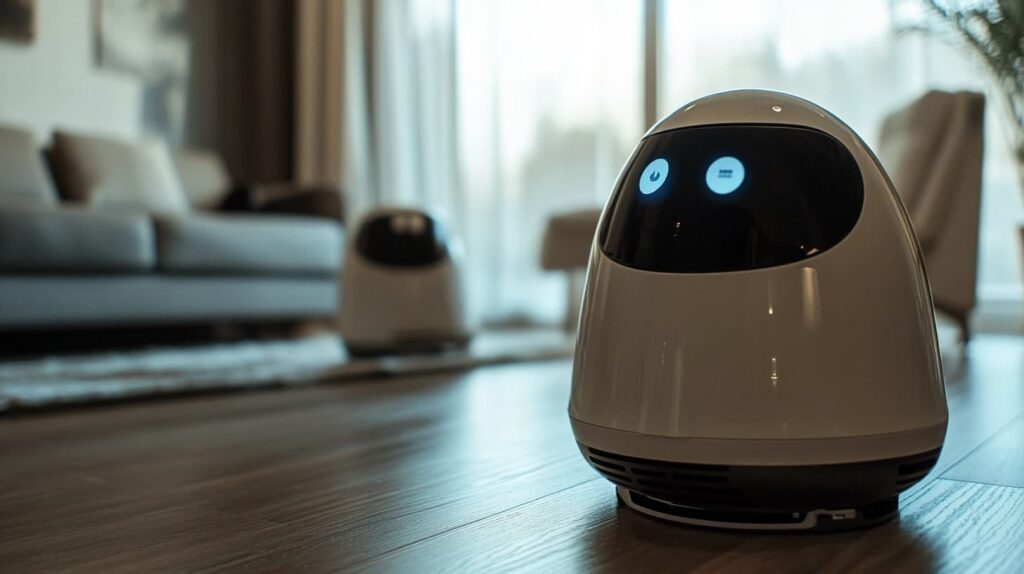
Home automation AI has improved human comfort and staying in the house. Ongoing development will lead to even more advanced AI capabilities in the future. AI is transforming home automation, making it more intuitive and user-friendly. Today, home automation has become commonplace for many people. Continuous learning and algorithmic improvements help to arrive at a great solution. The future of AI in home automation is gaining new power. Humans use their voices to give commands and make life better. These systems offer practical, affordable solutions to everyday household challenges.
- AI in the home will be able to integrate all devices thanks to intelligent systems. Integration creates a unified ecosystem that enhances comfort and personalization. Excellent synchronization will help to reach a new level without manual interaction. This seamless integration enhances home living.
- Thanks to machine learning, future systems can predict even better. Controlling the lighting and temperature and turning it off when necessary will help save money. Continuous learning helps to adapt to a person and their needs. Future developments will improve these systems, providing even greater control and convenience.
- Besides comfort, AI devices for home will create an increased level of security. The issue of data protection is of interest to many people, so transparency is essential. Work and study will improve security at home through special encryption. Cameras are equipped with even better sensors for monitoring. In the near future, savvy homeowners will benefit from enhanced security features.
- Thanks to artificial intelligence, systems not only develop but also help to save money. Analyzing user data allows systems to personalize services based on individual needs. AI-based systems can help save money on electricity. In general, artificial intelligence promises improved and sustainable systems for the smart home in the future.
